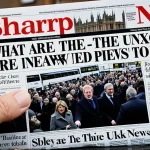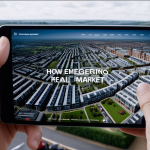Changing Social Dynamics in the UK
Exploring the contemporary shifts shaping society
The UK has experienced significant cultural shifts due to increased immigration, rapid technological advances, and the forces of globalization. These factors collectively drive changing social norms that influence everyday life and societal expectations. Immigration has diversified communities, introducing new languages, cuisines, and traditions while challenging existing social frameworks. Technology accelerates communication, modifies social interactions, and reshapes access to information, thus altering attitudes towards privacy and connectivity. Globalization fosters exposure to diverse ideas, facilitating more cosmopolitan outlooks but also provoking discussions on national identity.
Also read : What Are the Most Surprising Trends in UK News Today?
Historically, social changes occurred gradually, but in the 21st century, the pace has dramatically quickened. Societal trends in the UK now reflect a more pluralistic and digitally connected environment. This rapid transformation affects behaviours ranging from workplace dynamics to family roles, demanding greater adaptability across generations.
Understanding these dynamics is crucial for navigating the evolving societal landscape. The UK’s ongoing transition exemplifies how societal trends intertwine with historical context and external influences to redefine what it means to belong and participate in contemporary British society.
Also to read : What Are the Most Surprising Trends in UK News Today?
The Role of Immigration in Shaping Social Norms
Immigration UK has been a driving force behind profound demographic changes that are reshaping the social fabric of the country. Increased migration has contributed to a rise in multiculturalism, fostering diverse communities where varied languages, cuisines, and cultural celebrations coexist. This diversity enriches public life with cultural festivals such as Diwali and Eid becoming integral parts of UK society, reflecting evolving societal trends UK.
However, integration remains complex, as it challenges both newcomers and established residents to negotiate changing social norms. The process is often influenced by shifting attitudes towards immigration UK, which directly affect public policies and community relations. The evolving definitions of British identity now encompass broader multicultural dimensions, acknowledging that identity is no longer static but dynamically influenced by immigration and cultural pluralism.
These changes have accelerated in recent decades, contrasting with the more gradual social transformations witnessed historically. As immigration UK continues to alter the country’s demographic landscape, it simultaneously prompts continuous dialogues about inclusivity and cohesion. Understanding these forces is essential to grasp how immigration UK catalyses cultural shifts UK and the ongoing evolution of social norms in the UK.
Changing Social Dynamics in the UK
The UK’s cultural shifts today are shaped foremost by immigration, technology, and globalization. These forces accelerate changing social norms, transforming attitudes and behaviours faster than ever before. For example, technological advances have revolutionized communication, creating a digital society where online behaviour increasingly influences real-life interactions. Social media plays a significant role in spreading new ideas swiftly across diverse populations, challenging traditional norms around privacy, expression, and community engagement.
Globalization further deepens this transformation by exposing UK residents to varied cultures and worldviews, encouraging more cosmopolitan outlooks. The resulting societal trends UK reveal a blending of heritage with emerging values, visible in work environments, education, and everyday social practices. Historically, such profound cultural changes occurred incrementally over decades. Now, the 21st century speeds this process, compressing shifts into years or even months.
These accelerated changes challenge individuals and institutions to adapt continuously. The UK’s evolving social landscape illustrates how rapid adaptation is necessary to navigate the complexities of multiculturalism, technological interconnectivity, and global influences shaping collective identities and societal expectations.
Changing Social Dynamics in the UK
Examining the rapid transformations reshaping society
The UK’s cultural shifts UK in recent years are largely driven by the interplay of immigration, technology, and globalization. These forces accelerate changing social norms, noticeably altering attitudes and behaviours across diverse communities. For instance, technology reshapes communication styles, creating a vibrant digital society where the line between online and offline interactions increasingly blurs. Meanwhile, globalization exposes the UK to a kaleidoscope of global influences, encouraging openness to different cultural values and practices.
These societal trends UK represent a marked departure from historical patterns that unfolded more slowly. In the 21st century, adaptation to change occurs within shorter timeframes, compressing what used to be decades of cultural evolution into mere years. Such swift shifts challenge traditional frameworks that once stabilized social behaviours, demanding agility from individuals and institutions alike.
Significant transformations include the diversification of social roles, evolving expectations in workplaces, and the negotiation of identity within increasingly pluralistic settings. The pace and complexity of these changes highlight how interconnected factors continue to redefine what it means to belong and engage in UK society today, intensifying the need for comprehensive understanding and thoughtful responses.
Changing Social Dynamics in the UK
Skills for understanding rapid cultural evolution
Recent cultural shifts UK stem largely from immigration, technology, and globalization, which collectively accelerate changing social norms and redefine societal behaviours. Immigration UK introduces multicultural influences that diversify language and traditions, while technology UK fosters a digital society where communication and social interaction are profoundly transformed. Globalization expands UK residents’ exposure to international ideas, reshaping perceptions and encouraging more inclusive attitudes.
The most significant transformations include evolving workplace dynamics, where flexibility and diversity gain emphasis, and social settings that blend heritage with modern perspectives. For instance, digital platforms enable rapid diffusion of new cultural ideas, further compressing change cycles. This blending illustrates notable societal trends UK, reflecting increasing pluralism and interconnectedness.
Historically, cultural changes in the UK unfolded gradually over decades. In contrast, today’s 21st-century framework forces adaptation within years or even months, intensifying challenges to established norms. This acceleration underscores the importance of agility in social institutions and individuals’ mindsets, ensuring they keep pace with evolving expectations. Understanding how cultural shifts UK drive these rapid transformation helps contextualize ongoing changes and prepares society to engage constructively with new realities.
Changing Social Dynamics in the UK
Significant shifts shaping 21st-century society
Recent cultural shifts UK are predominantly driven by immigration, technological breakthroughs, and globalization. These forces accelerate changing social norms, reshaping attitudes and behaviours across diverse demographics. The most pronounced transformations include altered workplace dynamics favoring flexibility and diversity, and evolving social roles that blend traditional values with modern perspectives.
Technology fosters a digital society where communication styles have shifted dramatically. Online interactions and social media influence public opinion, challenging established norms and accelerating the dissemination of new ideas. This rapid information flow compresses cultural evolution into months rather than decades, intensifying societal adaptation pressures.
Globalization exposes UK residents to global cultural influences, fostering more inclusive attitudes and pluralism. This exposure redefines collective identity, pushing the UK toward a more cosmopolitan and interconnected society. Historical patterns of gradual change contrast sharply with today’s swift transformations, requiring individuals and institutions to respond with greater agility.
Together, these societal trends UK exemplify an ongoing, complex negotiation of belonging and identity in a rapidly evolving environment. Understanding these changes is crucial for navigating the challenges and opportunities presented by contemporary British society.
Changing Social Dynamics in the UK
Examining key cultural transformations and accelerated change
Recent cultural shifts UK are predominantly influenced by three driving forces: immigration, technology, and globalization. Each significantly contributes to changing social norms, reshaping attitudes and behaviours throughout the UK’s diverse population. Immigration introduces multicultural elements, technology fosters a pervasive digital society, and globalization increases exposure to global ideas, all combining to redefine everyday social interactions.
The most striking transformations include increased cultural pluralism, digital communication replacing traditional methods, and evolving workplace and family roles reflecting broader societal inclusivity. For example, social media accelerates the spread of ideas, rapidly influencing opinions and social conduct, which contrasts starkly with the more gradual cultural evolution witnessed historically.
Historically, societal changes unfolded over decades. Today, these shifts occur within years or months, compressing transformation timelines and heightening the need for adaptability. This rapid change intensifies challenges to established norms, requiring individuals, communities, and institutions to respond dynamically.
Understanding these societal trends UK contextualises contemporary experiences, demonstrating how interconnected factors act simultaneously to redefine identity, belonging, and societal expectations in 21st-century Britain.




